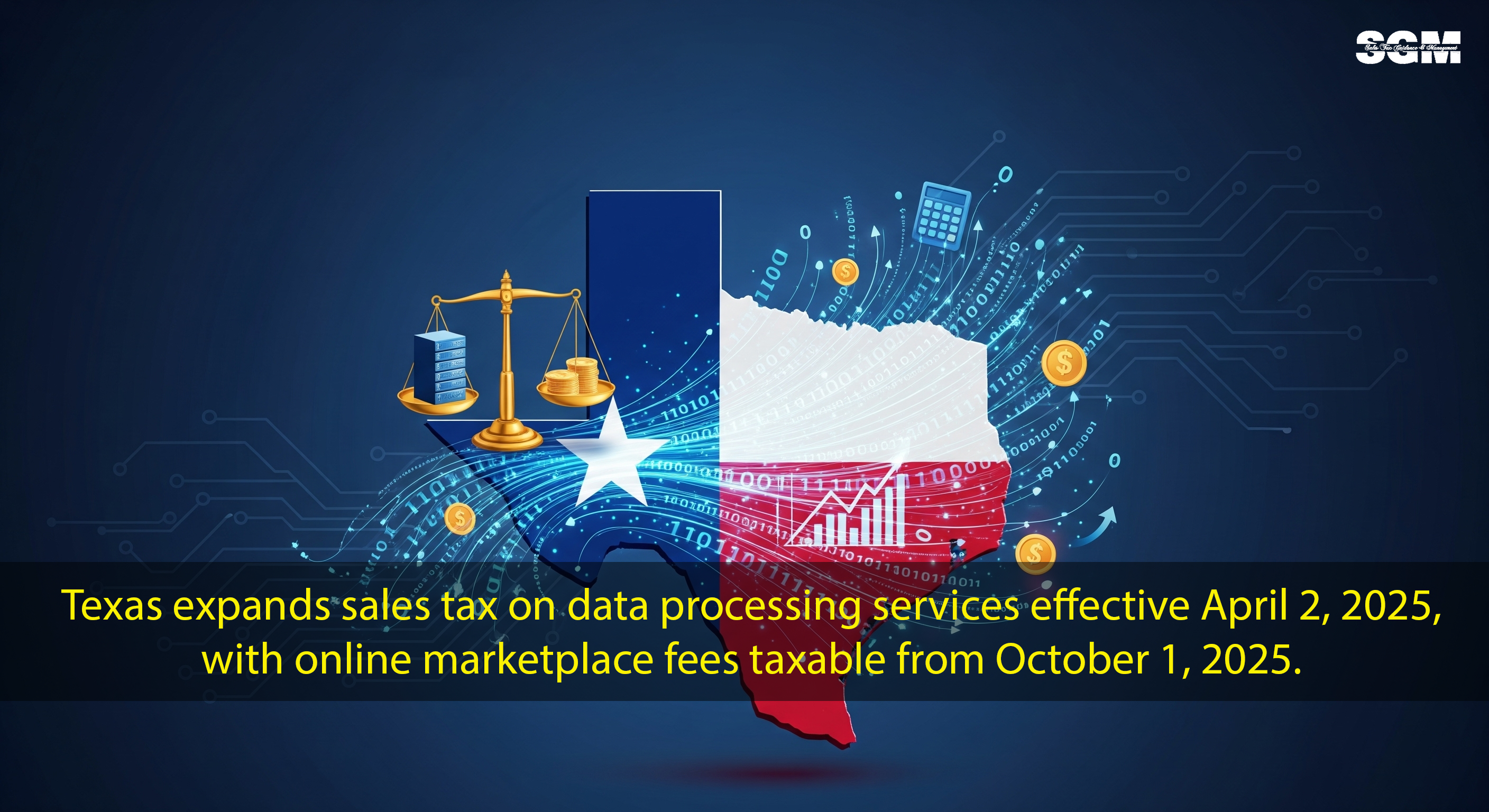"Texas' New State of Mind on the Taxability of Data Processing Services" - What You Need to Know
A significant update to Texas's sales and use tax laws is set to reshape how businesses handle data processing services. The Texas Comptroller of Public Accounts has finalized amendments to Rule 3.330, clarifying and, in many cases, expanding the taxability of these services.
What's Changing?
The new rule, which became generally effective on April 2, 2025, represents a fundamental shift in the state's approach to taxing data services. Here are the key takeaways:
- Expanded Definition: The rule provides a broader definition of what constitutes a "data processing service," including "computerized entry, retrieval, search, compilation, manipulation, or storage of data or information."
- A Shift in Focus: The Comptroller is moving away from the "essence of the transaction" test, which focused on the customer's intent, and is now concentrating on the activities performed by the service provider.
- Online Marketplaces Are Targeted: A notable change, with an effective date of October 1, 2025, is the explicit inclusion of services provided by online marketplaces. This means that fees for services like storing product listings and maintaining transaction records may now be subject to sales tax.
- Ancillary Services: The new rule introduces a concept for "ancillary" services. If data processing is a minor, non-separately valued part of a larger, non-taxable service, it might be exempt. However, the burden of proof is on the taxpayer to demonstrate this.
This is a critical development for any business operating in or with customers in Texas, especially those in the tech and e-commerce spaces. Understanding these changes is crucial for ensuring compliance and avoiding potential tax liabilities.
Official Source:
You can view the official rule on the Cornell Law School Legal Information Institute, which hosts the Texas Administrative Code - Link


